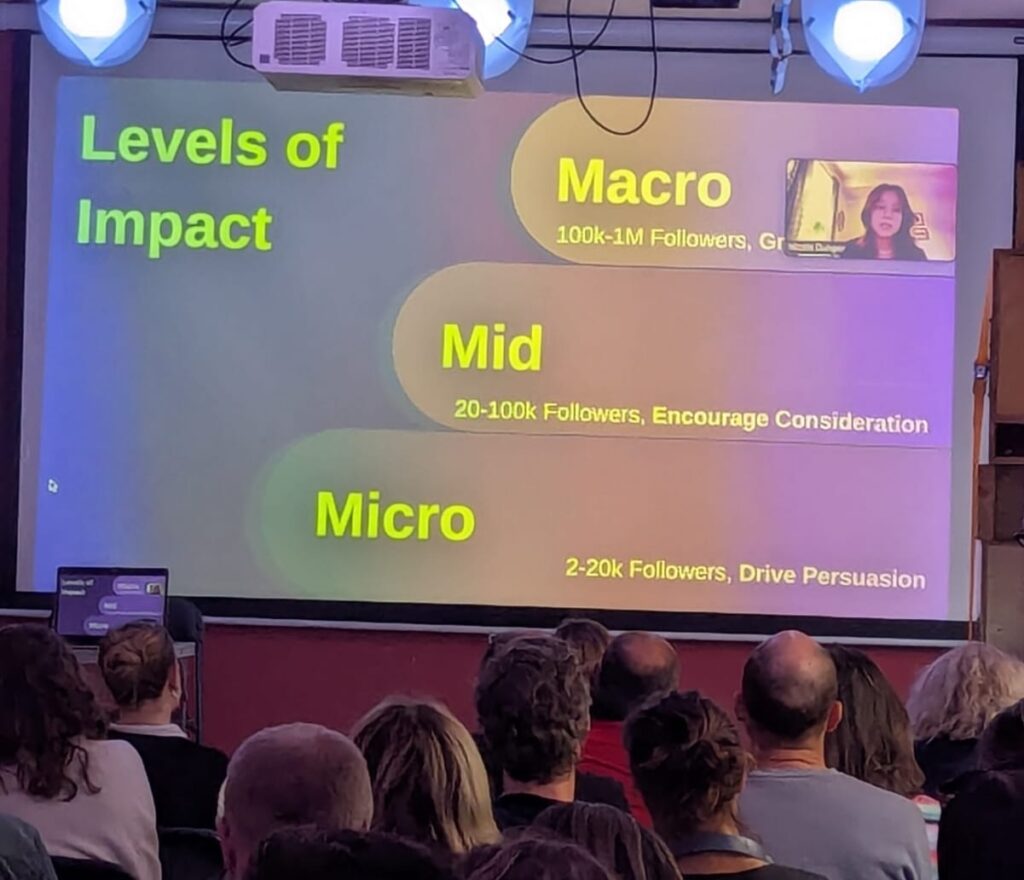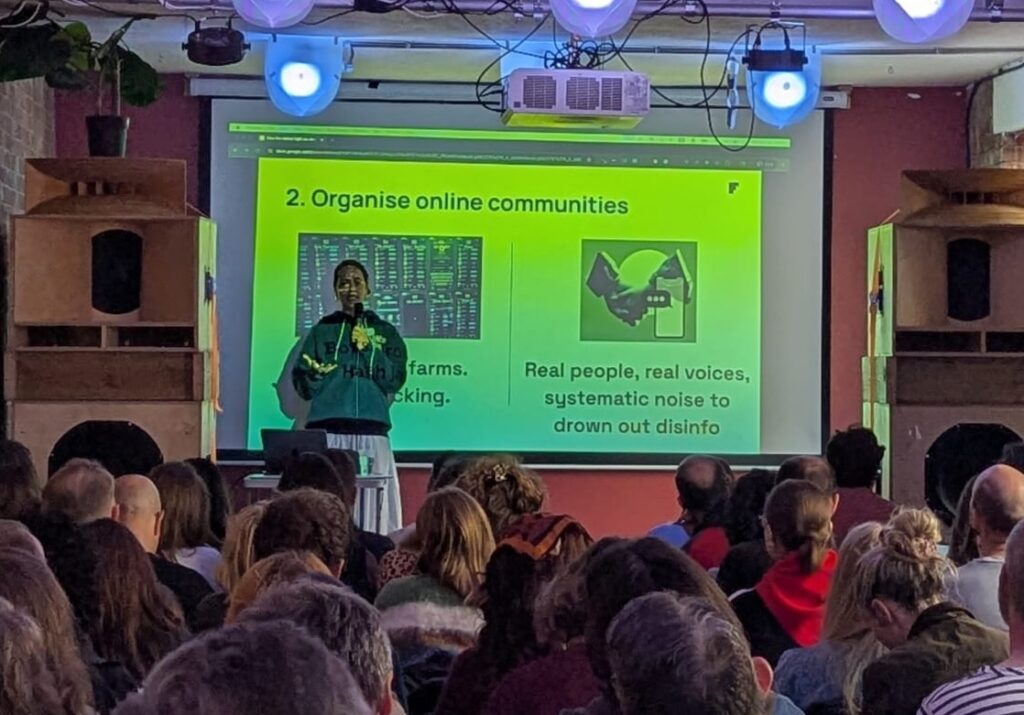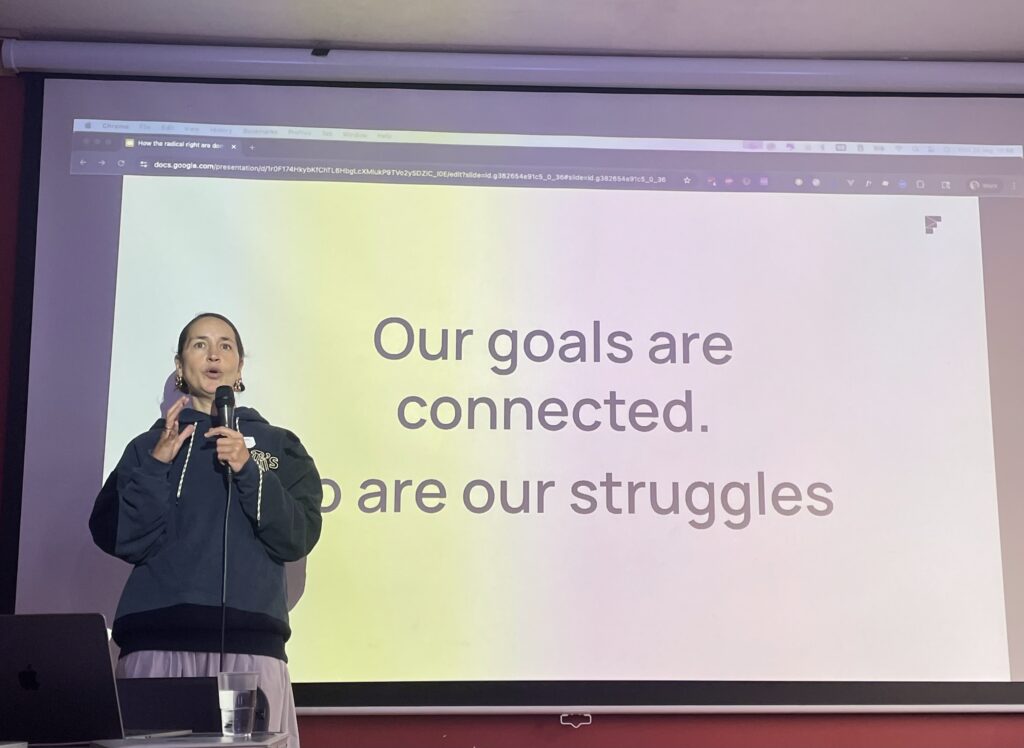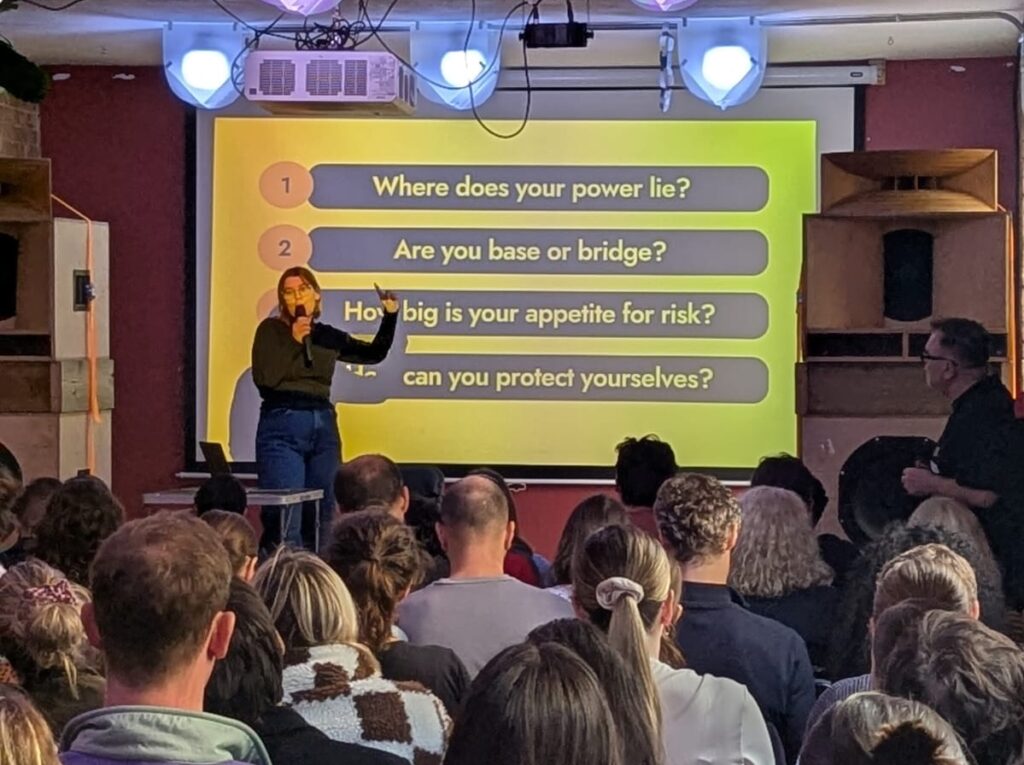“We need to do things differently, and we need to do them now.”
That was the message coming loud and clear from almost every speaker at the event we just organised with Rally. Over 100 brilliant and passionate people from organisations across the charity and campaigning sector joined 16 speakers to ask ourselves, how can we build digital power in the age of the radical right, in the UK and beyond?
Here’s some of the top insights we’re taking away, and plotting how we turn into action:
1. We need to influence the wider public, not just engage those who already agree
While we’re spending money preaching to the choir, the radical right are pushing their message much wider, with no concern for a positive ROI. Building our supporter base with people who share our values is important, but we also need to be out there influencing people without expecting anything in return.
Stories matter. Right now, opinions are being shaped and the radical right are overwhelmingly winning the attention wars online.
2. We need relatable messengers, and lots of them
Yes, some organisations are growing their reach on TikTok, but we need to go much further. A message from an organisation will always hit differently to a message from someone you know or love. That means letting go of the script, investing in creators and influencer networks and mobilising your supporters to paint the bigger picture in their own colours.

3. We need to “add broccoli to the rice“
As any parent knows, disguising vegetables in the foods kids love is a winning tactic. The radical right get this, which is why their ideology shows up in comedy and sports podcasts, health and wellness forums.
We need to stop listening to conversations in just the political spaces and start paying attention to what people are saying in community group chats, the back of taxis, cafes and school gates. Frame our messages in response to what people are already saying, and find ways to reach them where they are.

4. We need to simplify our message, get behind the same ones, and repeat
Simple messages stick. Phrases like ‘broken Britain’ and ‘stop the boats’ born of political parties are now embedded in the public consciousness. We need alternatives we can all get behind and endlessly repeat until they become just as common.

5. We need to hold on to hope
Many people we spoke to said they felt overwhelmed by the size of the mountain we have to climb together. But as Hope Not Hate reminded us, there are cracks we can exploit and most definitely ways to win back hearts and minds.
Most people in the UK want the same things – to provide for our families, to feel safe on our streets, a good health and social care system when we need it, strong communities, peace and happiness.
So many of those things are under threat right now, and understandably people are looking for who to blame, and how to fix it.
We are the doers, providing frontline services and campaigning for better funded and structured ones. We help people feel safe, have more choices and brighter tomorrows. Hope is our gift to others and our greatest strength. So let’s get to work.

What’s next?
At the end of the day, everyone was asked to write down a commitment they will take away and do. Hopefully seeds of ideas will start to grow in many places.
At Forward Action, we’ll be sharing more ideas and insights about how digital mobilisation can play a role in building power in the age of the radical right on our blog and social, so look out for more in the coming days and weeks.
We’ve also taken on some of the feedback from attendees and are planning a follow-up event that will bring people together to share, network and build. More on that soon!
If you’re thinking about how to mobilise your supporters or want to explore an idea for building digital power, we’d love to help. Get in touch – we’re ready to help make things happen.